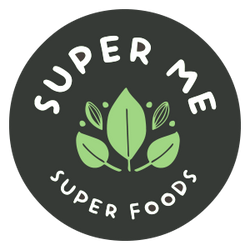You’ve heard it before, and I’ll say it again, great health starts in the gut!
Microbiome
Each of us has an internal complex ecosystem of bacteria located within our bodies which we call our microbiome. Did you know that your microbiome is home to trillions of microbes, diverse organisms which help to govern nearly every function of the human body in some way?
Fights Disease
The importance of our gut health truly cannot be overstated. Poor gut health can contribute to many health issues such as autoimmune diseases, malabsorption, leaky gut syndrome, skin problems, arthritis, hormonal imbalances.
Poor gut health also suppresses the immune system, increases anxiety, depression, sugar craving, causes digestive complaints and so much more!
You ARE what you eat
Our microbiome is shaped throughout our lives and adapts to changes in our environment. A few big factors which impact your gut health is the food you eat, how you sleep, and your stress levels. Eating a clean, unprocessed, wholefood, plant-based diet is one of the best places to start to support your microbiome.
Fibre
Fruit and vegetables are full of fibre. Fibre cleans your gut and protects you from harm. Fibre is fibrous and acts as an internal scrubbing brush, combining with water to create ‘bulk’. Our bowels work more efficiently when full of bulk fibre, as it helps to keep the digestive tract flowing, by keeping your bowel movements soft and regular. Fibre also helps to support the liver with detoxification and helps to clear old toxins and waste products.
Prebiotics
Vegetable fibre is the best fibre of all as some fibres are prebiotics (such as asparagus, onions, garlic, cabbage, beans, leeks, artichokes, root vegetables), meaning they are fermented in the colon by the healthful beneficial bacteria.
Prebiotic foods are like fuel for good bacteria. They have certain fibrous carbohydrates which help to nourish the good bacteria helping them to grow. This process helps build a healthy microbiome, which is our defence system against toxins we encounter from animal products, the environment, poor quality tap-water, and common yeast and viruses or other types of fungi.
Lowering inflammation in the body is another crucial aspect to consider when wanting to support optimal gut health. What’s better is that the gut thrives off diversity in the diet.
References:1. Gut Microbiota Modulation of Host Physiology: The Search for Mechanism (C1) - http://www.keystonesymposia.org/15C1
2. Defining the Human Microbiome - https://www.ncbi.nlm.nih.gov/pmc/articles/PMC3426293/
3. The gut microbiome in health and in disease - https://www.ncbi.nlm.nih.gov/pmc/articles/PMC4290017/
